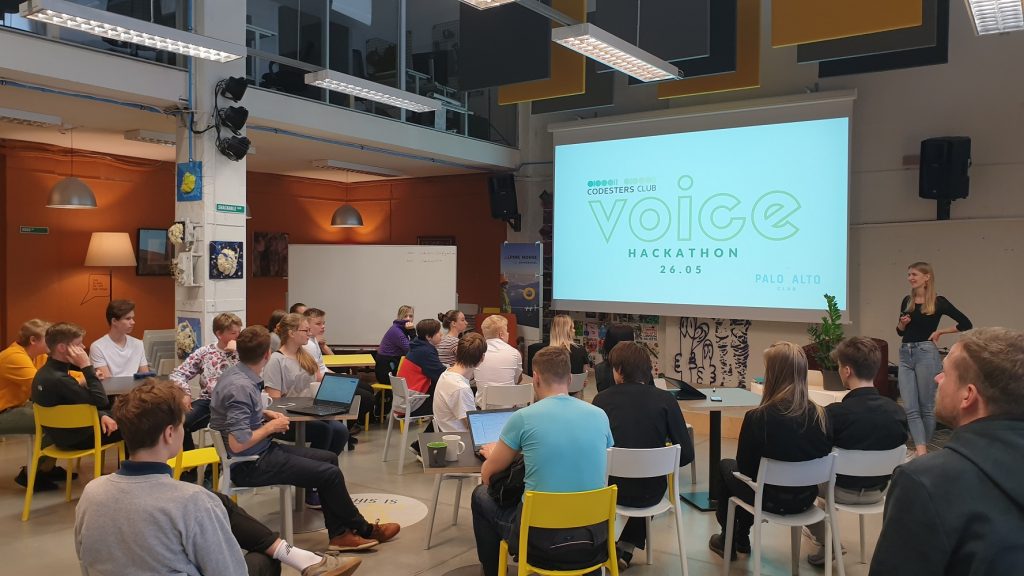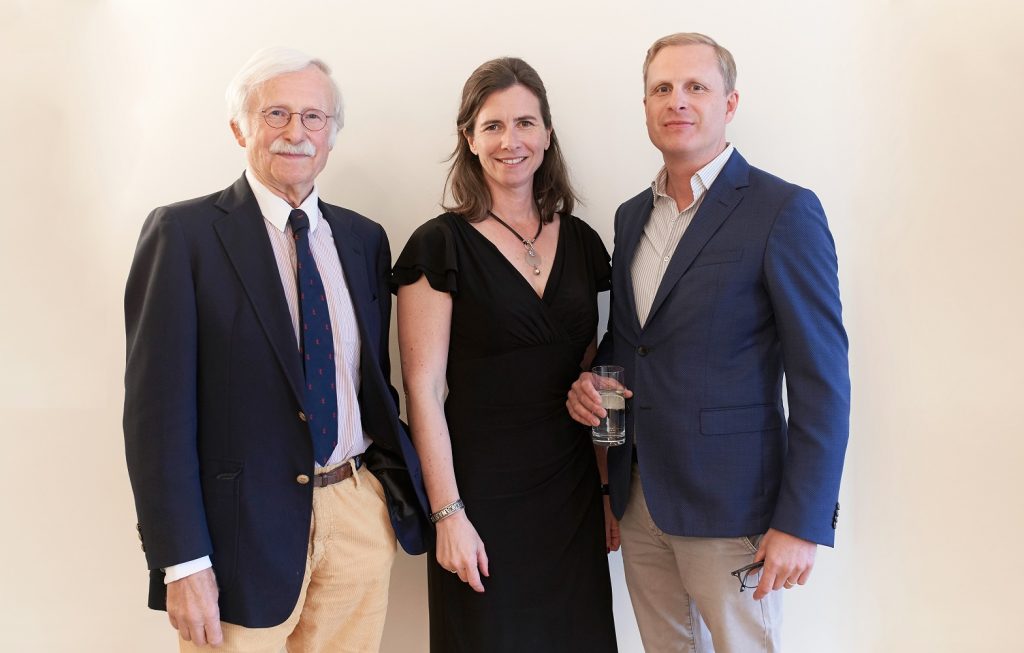The Riesenkampff family, whose ancestors lived in Estonia for almost 400 years until 1939, has reconnected with the country by setting up a digital product development programme to provide future-proof technology education for Estonian high school-level students by uniting the best of both business and academia.
For centuries, tens of thousands of Germans lived in both Estonia and Latvia. Called the Baltic Germans, they effectively formed the local nobility, acquiring large rural estates and comprising the social, commercial, political and cultural ruling class – even after Russia annexed Estonia in 1710.
By the end of the 19th century, there were approximately 47,000 Germans in Estonia, comprising just over 5% of the population but having a huge impact on the country. Even the country’s cherished song celebration tradition reached Estonia via Baltic Germans and their choral societies. It was only after Estonia became independent in 1918 that the Baltic German influence was finally diminished.
One of those German families were the Riesenkampffs, whose ancestors came to Estonia in the 16th century and settled here for almost 400 years until 1939, when they had to move away, after the pact between the Soviet leader, Joseph Stalin, and the German chancellor, Adolph Hitler, saw the majority of the Baltic Germans to be transferred back to Germany. But the family never forgot Estonia or the Baltics and runs the Riesenkampff Foundation (die Riesenkampff Stiftung) – a Berlin-based non-profit organisation that aims to support children-related activities in the Baltic states.
Supporting children’s technology education
In Estonia, the foundation recently set up an initiative called the Codesters’ Club that will focus not only on teaching a particular programming language, but on training a combination of soft and technical skills needed to deliver digital products that users would love. During a three-year programme, the Codesters’ Club pupils will have the chance to try out the shoes of a UX designer, a front-end and back-end developer as well as a project manager.

The foundation’s managing director, Nikolai Riesenkampff, a tech entrepreneur, understood the importance of equipping youngsters with relevant personal and practical skills at school level while building his company, a London-based Skrill, formerly known as Moneybookers, from a startup to an e-commerce giant.
“The idea for the Codesters’ Club came about when I was running Moneybookers. We had an office in Bulgaria, with around 600 people there, lots of software engineers and we employed many people directly from high school. They were really good coders, they learned at autodidactically at home, but they didn’t have any clue about other processes – how to put things into right format, communicating and HR environment,” Riesenkampff told Estonian World. His family’s roots encouraged him to pursue this idea in Estonia.
The Codesters’ Club effectively enables pupils to learn the relevant IT skills tuition-free, while still in high school. “The studies start at 10th grade and take five academic hours a week for three years, educating these schoolkids in product development: coding, project management, design, practical experience, including lectures by people from Skype, Bolt and TalTech (Tallinn University of Technology – editor) to educate on a practical level,” Riesenkampff explained.

The programme is partnering with several secondary schools in Tallinn and two classes have already started, first class graduating in 2022. “Hopefully the graduates are getting jobs with our partners and then they can decide whether they still want to go to the university or not,” Riesenkampff said.
A positive impression
Historically, the Riesenkampff family was mainly based in Tallinn – or Reval, as it was called back then – and in Riga, the Latvian capital. “But the family had the strongest connection to Estonia. Unlike many other Baltic-German families, our family was mainly based in the city – as lawyers, doctors and even two mayors. Hence, my father and his brother kept a very close relationship with Estonia,” Riesenkampff noted.
While many people, who were forced to emigrate before or during the Second World War, finally had a chance to visit Estonia again after it regained independence in 1991, the Riesenkampff family was one of the exceptions. “I was here for the first time in 1985. They drove us directly to the Viru Hotel (the only hotel accommodating international tourists at the time – editor). My father said: be careful, because the KGB (the Soviet security service – editor) will be listening,” Riesenkampff recalled.
The family came back in 1993, when his dad started supporting the local Christian community. “And then we started adding project after project, finally starting the Riesenkampff Stiftung, based in Berlin, but having an activity in Estonia, supporting children. We also support the foodbank – there’s still poverty in Estonia.”
According to Riesenkampff, among the descendants of the Baltic Germans – numbering about 50,000 people in Germany – the impression about Estonia is very positive. “Many people still support projects here – although, most of the time, they take care of the graveyards,” he told Estonian World.
Riesenkampff added that among the ordinary Germans, overall reputation of Estonians is also very good – seen as openminded and forward-looking people. “As for me, I have always loved Estonia – our family’s home – and I admire how innovative and supportive people are here.”
In the meantime, the Codesters’ Club programme expects to triple the scope of the programme in the upcoming years and therefore is open to collaboration with schools and businesses.
Cover: Nikolai’s father, Joachim Riesenkampff, his cousin Marie v. Maydell and Nikolai Riesenkampff.

